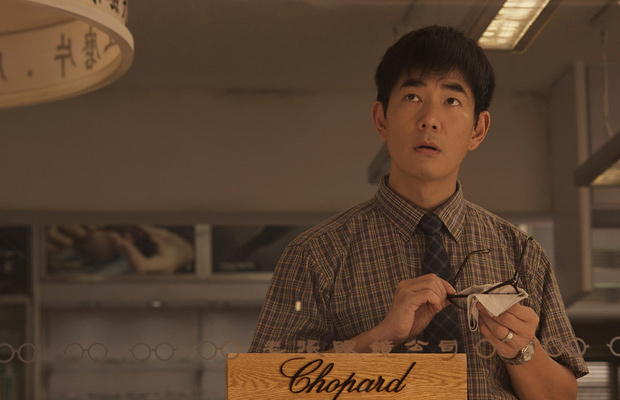Is This a Lasting Treasure?: Chen’s Sophomore Rom-Com a Sugary Sweet Endeavor
Arvin Chen, the Taiwanese-American director and screenwriter of Will You Still Love Me Tomorrow? certainly has a penchant for flights of fancy, though his latest film has an inescapable streak of melancholic longing that sometimes lends it an engaging advantage over similarly formulated titles in this vein. Your attraction to fluffy escapades involving miscommunications in love and lust will most likely determine your reaction to the film, which, as its poppy title taken from an iconic ditty from the Shirelle’s indicates, will resolve itself in satisfactory fashion so you’re left with a warm, faded glow of enjoyment. Dipping into moments of magical realism, Chen channels a tradition of classical cinema that may have you recalling Jacques Tati or Jacques Demy, though it doesn’t quite reach a confectionary crescendo as those particular influences would suggest.
Weichung (Richie Ren) works at an optical ship in Taipei and has been happily married to his childhood sweetheart, Feng (Mavis Fan) for the past nine years. They lead a comfortable existence caring for their young son, Awan (Chang Wei-ning), the only evident drama seeming to be Feng’s inability to get to work on time, though it’s immediately obvious that her handsome supervisor lets her tardiness slide because he likes her. But, the metaphor of Weichung’s occupation rears its head when Thomas (Wong Ka-lok), a Hong Kong flight attendant, wanders into Weichung’s shop one day for some prescription glasses. Eyes are opened, so to speak, and a mutual attraction ensues. Meanwhile, back at home, Feng has designs on having another child while Weichung’s wild-child sister, Mandy (Kimi Hsia), has unexpectedly broken off her engagement to Sen-Sen (Stone), leaving their wedding photographer, the flamboyant Stephen (Lawrence Ko) to try to remedy the issue.
Despite its major dramatic conflict focusing on Weichung’s coming to terms with his sexual orientation, the real heart of the film happens to be in the performance of Mavis Fan as Feng, who evolves from near Stepford wife vacancy into distraught turmoil as her perfectly planned life veritably crumbles around her. If some of Chen’s brief flourishes of magical realism sometimes seem overboard, it’s Fan’s alcohol fueled karaoke rendition of the titular song, moving from dark, drab, and drunk to a bright, soaring fantasy, that becomes a welcome guilty pleasure. On the same note, hers is the only character who seems to be granted realistic growth, curiously the instigator of the hopeful ending.
Comparatively, the subplot involving Weichung’s cold-footed sister Mandy seems a comic distraction, a weak heterosexual counterpoint to drive home the heavy-handed theme that lasting love isn’t something that can be fixed into some concrete long term goal. But despite these superfluous moments, Chen’s film manages to clip along rapidly enough as it hits all the customary marks, brightly unveiling a host of likeable and engaging characters that, even for their familiar issues and resolutions, are an entertaining crew.
★★ 1/2 / ☆☆☆☆☆
